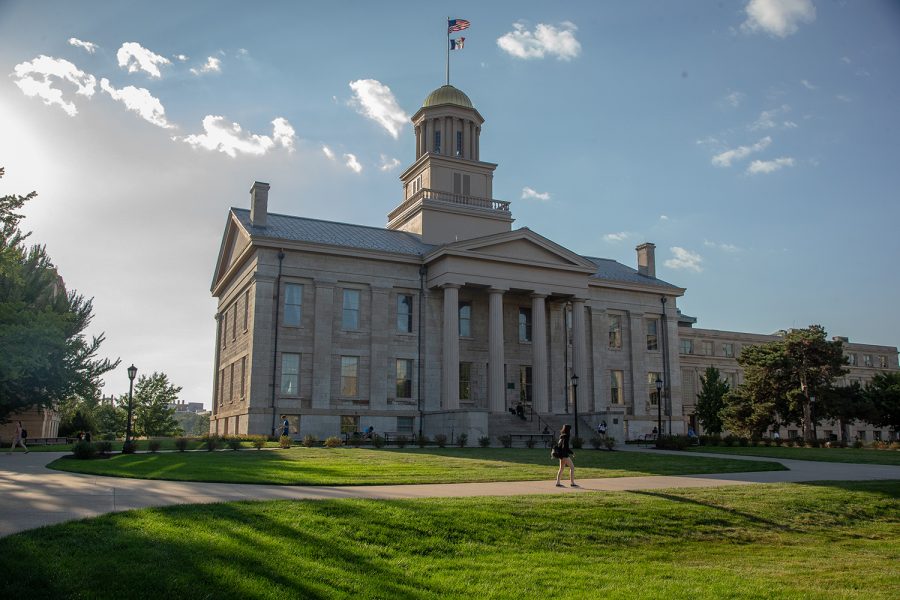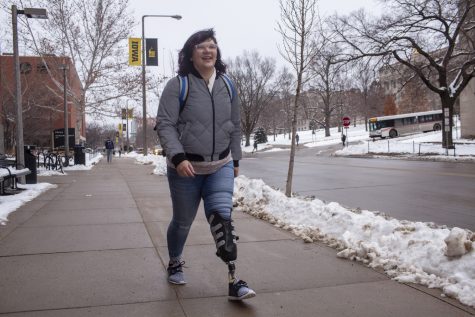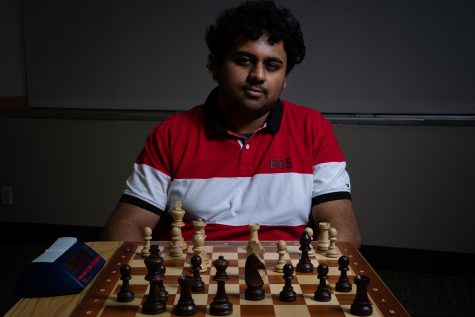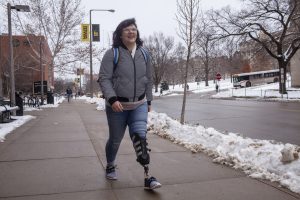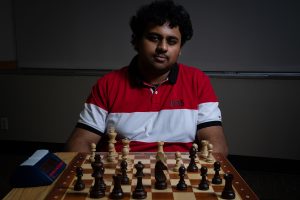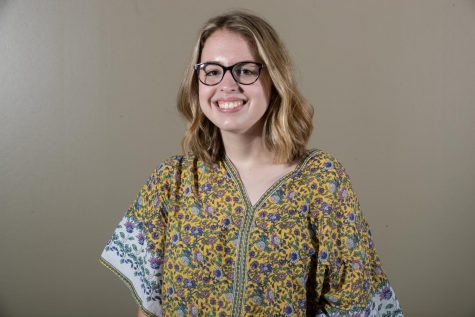UI’s Institute for Vision Research receives $5 million gift for blinding eye disease
A $5 million gift to the UI’s Institute for Vision Research from Alice and John Butler will help advance cutting-edge stem cell research for blinding eye disease.
The Old Capitol building is seen in 2018.
January 17, 2019
The University of Iowa Institute for Vision Research recently received a $5-million gift from Alice and John Butler to establish the Alice L. and John E. Butler Vision Research Fund, which will go toward gene and stem-cell research for blinding eye disease.
Edwin Stone, director of the Institute for Vision Research, said the grant will fund an ongoing project to use stem cells to restore vision to patients with retinal-degenerative diseases. The research spans common diseases, such as macular degeneration, to extremely rare diseases, such as retinal pigmentosa.
“What we’ve been working on for a number of years is the ability to generate stem cells from patients’ tissue and turn those stem cells into new retinal cells,” Stone said. “We’re not doing this in people yet, but what we’re hoping to be able to do is to transplant new photoreceptor cells back in to peoples’ eyes to restore visual function.”
Stone said the UI is home to the only institute in the U.S., and possibly the world, doing this research.
Dana Larson, director of communications and marketing for the UI Center for Advancement, said the fund will help to finance equipment and help attract scientists and personnel to the institute.
The Butlers’ gift comes nearly a year after the institute removed Stephen Wynn’s name from the Institute for Vision Research following allegations of sexual misconduct.
RELATED: Regents approve removal of Wynn’s name from UI vision institute
Larson said the Institute for Vision Research kept Wynn’s $20 million gift after his name was removed from the institute.
“The intent of [Wynn’s] gift was to fund research towards treatments and cures for blinding eye diseases, and that’s what the money is being used for,” Larson said. “[The Butler’s] donation shows that people have a lot of confidence in the work that [researchers] do there.”
In a press release, UI Vice President for Medical Affairs Brooks Jackson, also the dean of the Carver College of Medicine, said the gift reflects well on Institute for Vision Research’s expertise.
“Philanthropic support is in many ways a vote of confidence,” Brooks said in the release. “This generous gift commitment from the Butler family is a testament to the expertise of our scientists and clinicians who are poised to advance discoveries and treatments for both common vision problems and rare eye diseases.”
Stone said the Butlers’ gift will help speed up the progress of stem-cell research at the visual institute.
“[Our research is] a complicated process that involves lots of very sophisticated instruments and robots and things like that, and it involves very experienced people. All of those things are very expensive,” Stone said. “When a generous family like the Butlers provides a gift this size for us to use at our discretion to go after a cutting edge project like this — it’s an absolutely pivotal thing for us to be able to accelerate our movement towards curing these diseases.”



